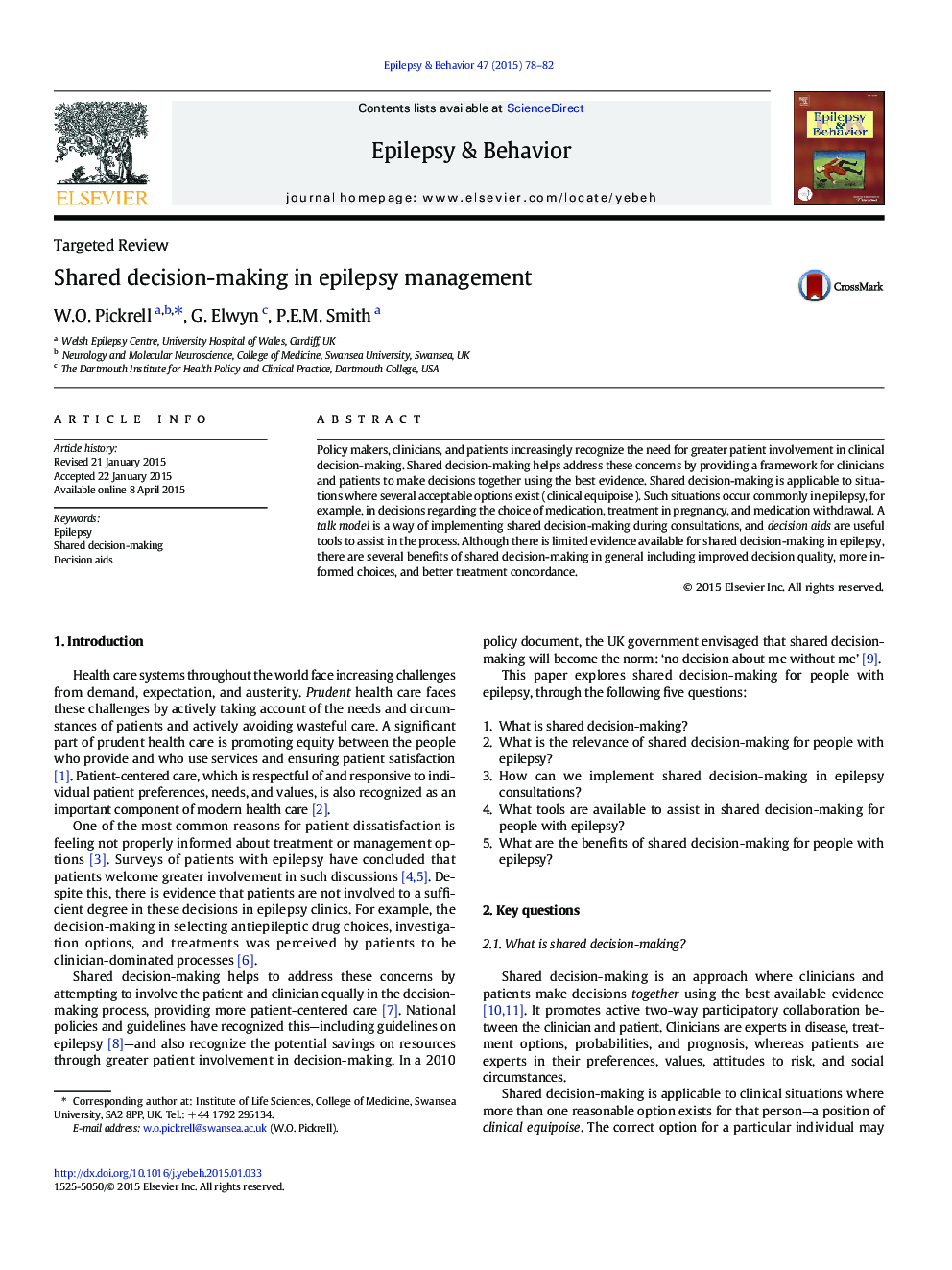| Article ID | Journal | Published Year | Pages | File Type |
|---|---|---|---|---|
| 6011017 | Epilepsy & Behavior | 2015 | 5 Pages |
Policy makers, clinicians, and patients increasingly recognize the need for greater patient involvement in clinical decision-making. Shared decision-making helps address these concerns by providing a framework for clinicians and patients to make decisions together using the best evidence. Shared decision-making is applicable to situations where several acceptable options exist (clinical equipoise). Such situations occur commonly in epilepsy, for example, in decisions regarding the choice of medication, treatment in pregnancy, and medication withdrawal. A talk model is a way of implementing shared decision-making during consultations, and decision aids are useful tools to assist in the process. Although there is limited evidence available for shared decision-making in epilepsy, there are several benefits of shared decision-making in general including improved decision quality, more informed choices, and better treatment concordance.
